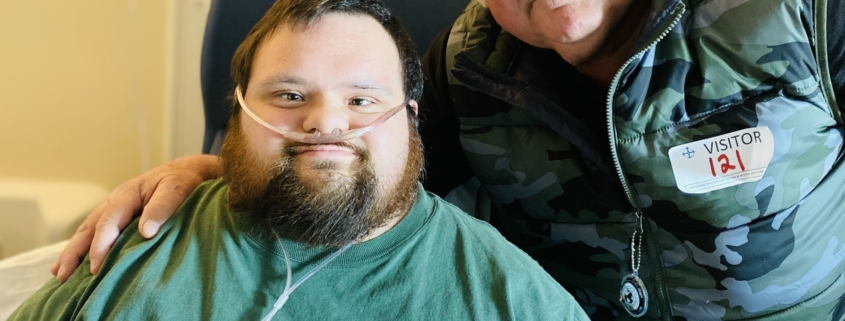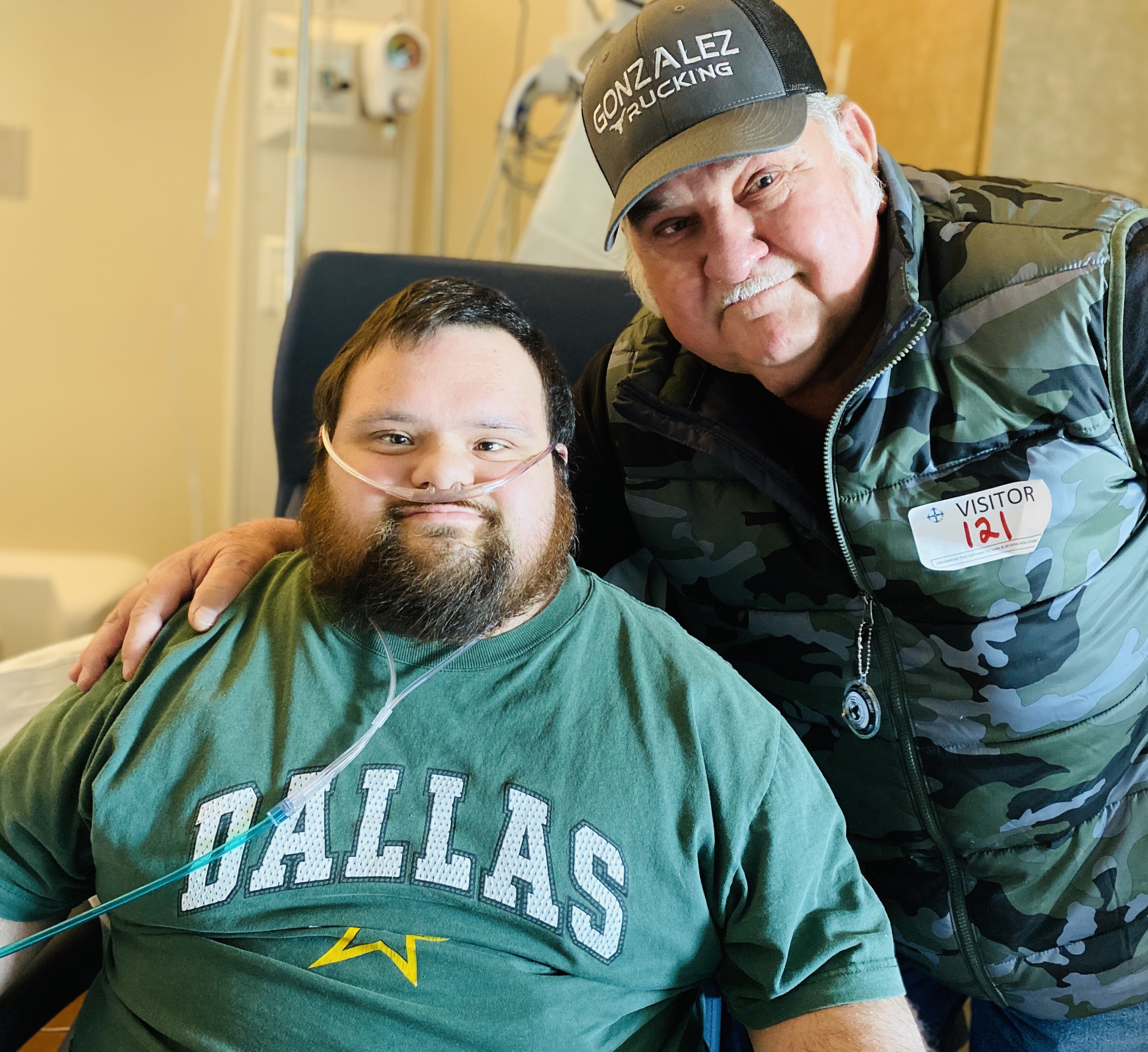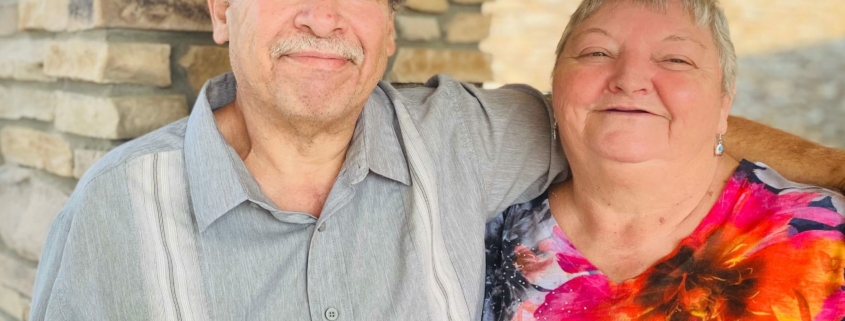Family has always been important to Joey Gonzalez. As a person with down syndrome, Joey’s family has always been there to support him. They live in Alliance, Nebraska, and Joey loves to spend time with his dad and four brothers. His mother passed away a year ago, and for many years prior, Joey helped care for her. Special Olympic sports are Joey’s passion in life. His favorites are bowling, basketball, and track.
When Joey began having difficulty breathing one winter day, his father, Tony, took him to the emergency room for evaluation. Joey was diagnosed with COVID-19 pneumonia. In the hospital, Joey required a ventilator and had a tracheostomy placed. His physicians prepared Tony for the worst.
“The doctors told me he wouldn’t make it,” Tony said with tears in his eyes.
But Joey had other plans. Despite the grim outlook communicated to his father, Joey pulled through.
“He’s a miracle,” Tony tells people.
With Joey stabilized, Tony and his family began preparing for Joey’s recovery. First, they met with Joey’s case manager at the acute care hospital and reviewed their options. After doing their due diligence, the family chose Northern Colorado Long Term Acute Hospital for Joey. They felt confident in the quality of care offered at NCLTAH, and the location was perfect for Joey’s eventual return home.
As Joey’s stay at NCLTAH neared its conclusion, the family’s experience validated their decision. “The nurses and doctors were so generous and nice!” Tony reflected. “Dr. Pearson was a great advocate for Joey and made sure I could be a huge part of his care. The therapists were very good at their job, always encouraging Joey. And I loved the education I was given so I can take care of Joey at home!”
“Overall, this place is the best!” Tony added.
Joey couldn’t have been more excited as he prepared to return home. Looking forward to resuming a regular routine, Joey has one main goal: returning to the Special Olympic sports that he loves so much.





